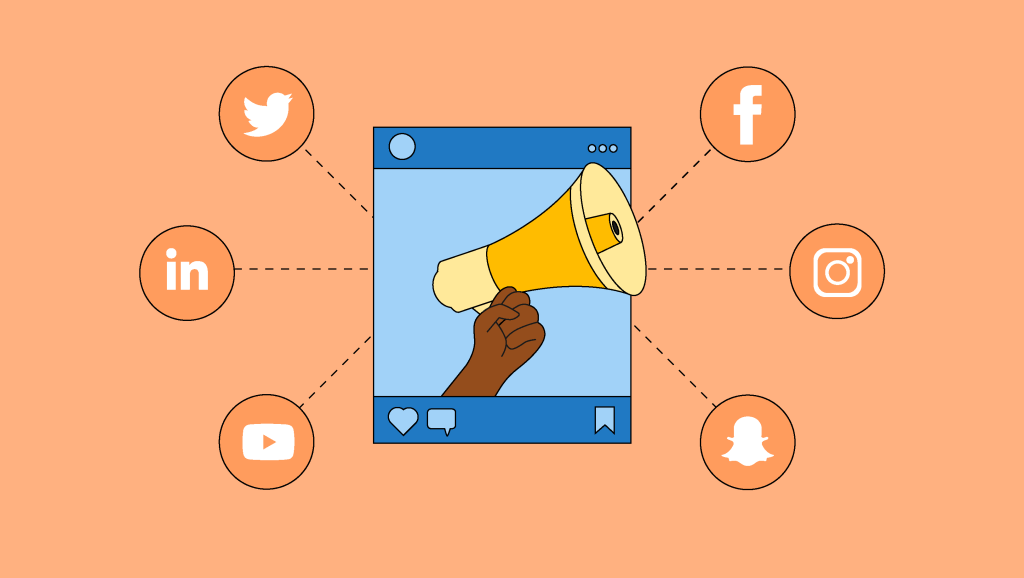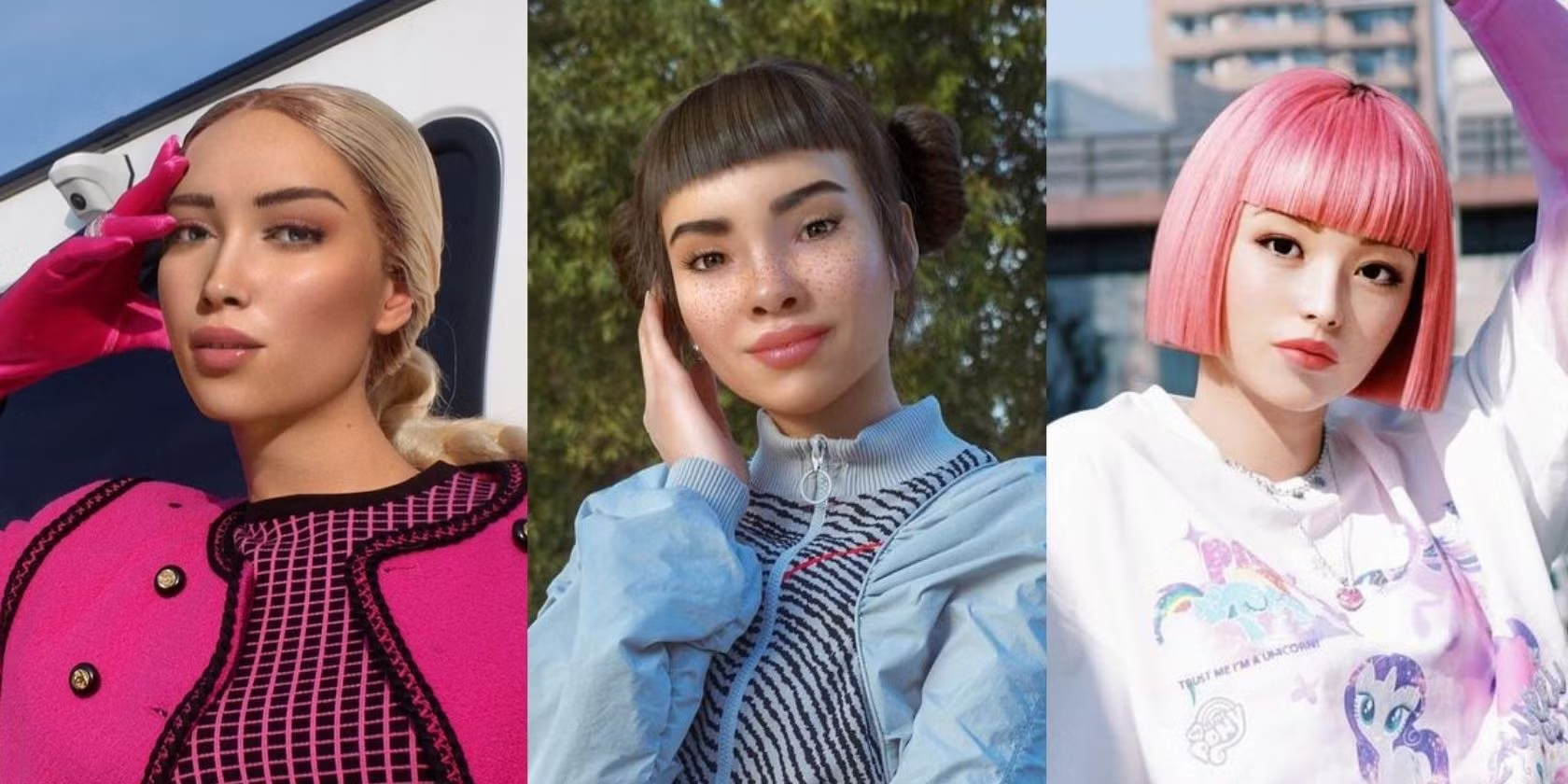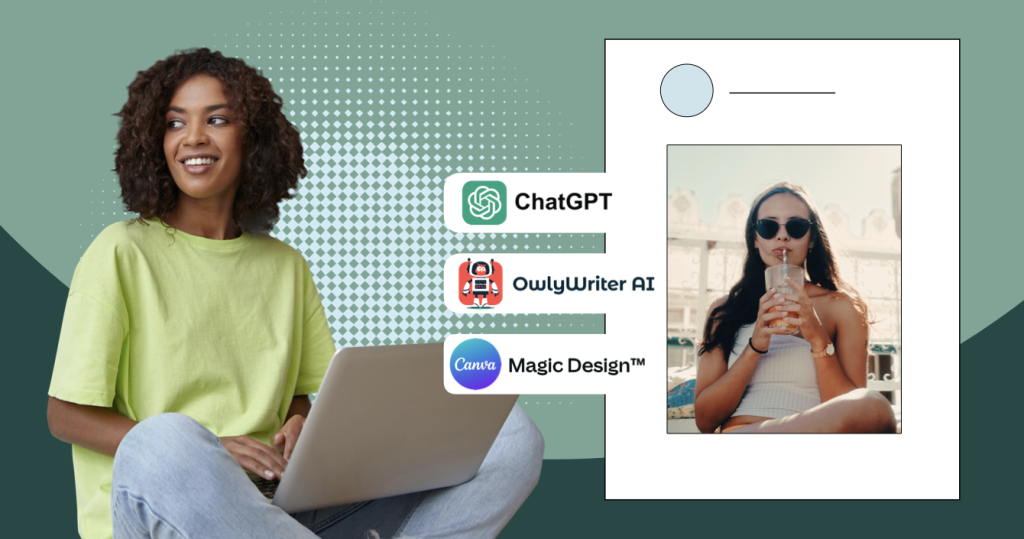In the past few years, digital marketing has really evolved, and brands are now relying a lot more on influencers to promote their products than they ever were before. At the same, technologies such as AI have also improved a lot and are used in many industries. This technology is used to identify the target segment, select the influencer and create and monitor campaigns. We will finally talk about the future of AI and influencer marketing: virtual influencers

1. Segmentation and understanding customer behavior
In digital marketing, AI is used to analyze large amounts of data and give insights to the brand on the customer behavior, trends and even preferences. Since it is really important to understand the target customer before choosing your influencers, AI is a great tool to help brands do all of the tedious research for them so they can focus on other aspects of their online marketing. AI uses algorithms to analyze data across all social media platforms and looks at metrics like demographics, interests, social media behavior, browsing history and purchasing patterns (Atherton, November). By better understanding their target, brands will be able to choose the influencer that fits and represents their clients the best.
2. Influencer selection
Once they have identified their target segment with the use of AI technology, it can also help them do their influencer selection through influencer discovery tools. The technology will scan social media profiles to find the influencers that are best fitted for the segment that has been identified. Once again, it will look at the influencer’s engagement, demographics and his audience interests to match the brand’s demographics to the influencers to ensure that both parties are the best match possible.
It will also look at the influencers that have already mentioned their brand in the past. By looking for a loyal customer to make as their influencer, the influencer’s community will be more inclined to buy the products and even support this influencer through their purchases. By analyzing the influencer’s past content, they can also make sure that the influencer’s values over the years align with their values, campaign goals and target audience.
One issue that brands might face is making sure that their influencer is authentic. AI software has tools that help detect the presence of bots or fraudulent accounts that might interact with the influencer’s content. It also verifies if there is a presence of fake accounts so that they can make safe and trustworthy partnerships with their chosen influencers.
3. Creating and monitoring personalized campaign
Once they have found the best influencer for their brand, all that is left to do is create a campaign that will be interesting and best fitted for their customers. For the creation of their campaign, content creators have the choice between a lot of tools that can help them with different aspects of their creation. Here is a short list if softwares and their use:
- ChatGPT: used for production of text, images, videos, audios
- ScriptAI: to create captions
- Yarnit: for text, images and audio based on influencer’s input (Atherton, November)
And more
The AI softwares are able to create campaigns and content that resonate with the influencer’s audience only requiring some human touches. Once the campaign is created and going live, AI can monitor how well the campaign is doing in real-time. Nowadays, content goes viral in one instant and can become irrelevant in another. The technology, by tracking metrics like conversion rates and engagement, can make recommendations on how to adjust their content to be more inline with their target audience. It is all about improving the content to make sure that the influencer’s content is doing its best.
The future of influencer marketing
The use of AI is not exclusive to campaign management. After some texting and experimenting, brands are looking at AI influencers to meet their online marketing needs. Virtual influencers are the future of influencer marketing. Just like any new technology, they represent advantages but also disadvantages for digital marketers.

Advantages
Brands become more and more concerned with their image but also with their influencer’s image and reputation. Influencers are never shielded from controversy or even from past mistakes resurfacing. Brands have lost their control over those types of situations and having a virtual influencer is a way to regain that control. They have much more control over the messages that are being sent to the public.
They also operate 24/7 and are able to answer the customers’ questions at any time of day. This offers more personalized interactions to their customers and developing a closer relationship. It is a very interesting proposition for brands that need round-the-clock audience engagement and for those companies who want to reduce their expenses regarding influencer marketing. As stated in a Forbes article: “According to Gartner, switching from human to AI influencers can lower campaign costs by up to 30%, eliminating fees, travel and logistics expenses.”
Disadvantages
Although all of these advantages seem really interesting, there are as always, some disadvantages. Brands need, first of all, to be aware of potential algorithms biases. AI is programmed by humans so if it is programmed a certain way, some biases could still come into play. The biggest risk for the brand would be to lose its authenticity. Since AI does not have the emotional connection and intelligence that humans have, the interactions with the customer might be limited. These kinds of interactions are less likely to cause long-term connections with the influencer. Since the influencer is programmed to promote certain products or facts about the brand, they cannot make real or other recommendation as would make a real influencer. All these factors could eventually cause the customer to have lower trust in the brand.
AI is definitely becoming a part of our everyday life and is more and more integrated in business including digital marketing. One recommendation that could be made to the influencer marketing industry is to keep up with the trends, follow the developments of AI and adapt to them because it could bring so much positive to these brands and even help them focus on more important aspects of their jobs.
Sources
https://coschedule.com/ai-marketing/ai-influencer-marketing
https://www.linkedin.com/pulse/ai-influencer-marketing-revolutionizing-future-brand-martinez-fo0uc
https://digitalmarketinginstitute.com/blog/influencer-marketing-and-ai
Images
https://www.makeuseof.com/popular-virtual-influencer
https://www.aspire.io/blog/how-to-leverage-ai-for-influencer-marketing
